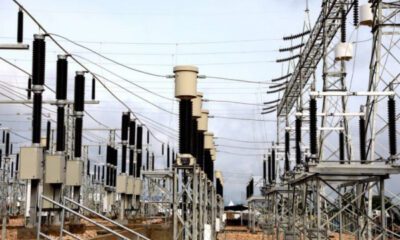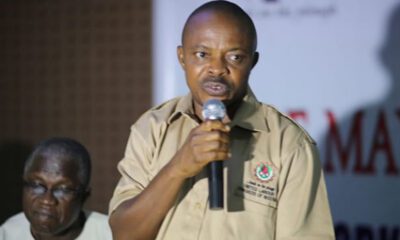Top Story
Electricity act: FG unveils plan to unbundle TCN
The Federal Government on Tuesday said it plans to restructure the Transmission Company of Nigeria (TCN) to align with the Electricity Act 2023 and the industry demands.
Minister of Power, Mr Adebayo Adelabu said this in Abuja at the Ministerial Retreat on the Integrated National Electricity Policy and Strategic Implementation Plan.
The retreat has as its theme “Navigating and Aligning on the Path to Enhanced Electricity Reliability.”
Adelabu said, “It is time to restructure the TCN into two entities: the Independent System Operator (ISO) and the Transmission Service Provider (TSP).
“This restructuring must synchronise with the evolving landscape of state electricity markets, addressing calls for the decentralisation of the national grid into regional grids interconnected by a new higher voltage national or super-grid.
“Essentially, we must ask whether the government should directly provide electricity nationwide or rather facilitate its provision by drawing comparisons with China’s centralised model and the US’s diverse access models.
“Understanding how to handle subsidies, cross-subsidies, and aligning the Rural Electrification Agency’s role with emerging state markets are vital questions that demand stakeholder scrutiny for effective resolution,” he said..
The minister said that for the country to increase its Gross Domestic Product (GDP) to one trillion dollars by 2030 as projected by President Bola Tinubu it must massively increase investments in electricity.
Adelabu said that the federal government must work with state and local governments to increase the coverage and distribution of electricity across the country.
“Certain observable aspects within our sector require attention. These include the poor track record in contracting, contract management, and adherence to contractual obligations, in some cases, even by design.
“With impartial examination, it is evident that these identified factors erode confidence in the viability of the sector and pose fundamental challenges of inadequate capitalisation and limited access to funds.
“For the diverse players along the energy value chain, from gas supply to electricity distribution,” he said..
The minister said that a major issue in the power sector was the pricing of gas utilised by Generation Companies (GenCos) in dollars describing it as a huge volatile variable that affects the pricing of electricity for end-users.
“A preferable option was to ensure that gas utilised by the GenCos is traded in naira so as to manage the foreign currency-related inflationary trends that challenge the application of the Multi-Year Tariff Order (MYTO) methodology.
“We must find ways and means to pursue domestic gas policies and incentivise stakeholders for the supply of gas for inland use in electricity supply.
“Other industrial activities and conversion to compressed natural gas (CNG) and Liquefied Petroleum Gas (LPG) for transportation and domestic uses respectively,” he said.
According to him, one of the major deliverables from the policy-making process is a viable method for establishing a sustainable capital investment programme around gas processing and transportation infrastructure.
“We must be forthright and passionate about our industry while remaining objective in finding the necessary solutions to propel us forward, establishing a credible policy framework for reliable electricity in the country,” he said.
Minister of Finance and Coordinating Minister of Economy, Mr Wale Edun, said that power was one of Tinubu’s priority areas.
According to him, 40 percent of the Nigerian population do not have access to electricity and clearly to the president and other stakeholders that is unacceptable that is why what is being done here today is critical.
“Ten years ago there was a privatisation exercise, but it has underwhelmed and underperformed and the results have been disappointing so it is important that those stakeholders are part of the conversation and solutions.
“In addition to all other options that we have for providing electricity, we now have an array of options with renewable energy, green energy.
“What we want to see is a solution of providing power and growing the economy rapidly and inclusively,” he said.
Earlier, Permanent Secretary, Ministry of Power, Mr.Temitope Fashedemi said that the retreat was for stakeholders to sit together and chat a way forward to achieve the mandate of kps given to the minister.
Fashedemi said that participants at the retreat were drawn across the value chain of the power sector as well as other sectors of the economy that align with the sector.
“It is, therefore, expected that the outcome of the retreat will form the basis of the development of the new integrated national electricity policy and its strategic implementation plan which will guide other reforms the minister has for the sector,” he said.
Top Story
Eidel-Kabir: FG declares Monday and Tuesday public holidays
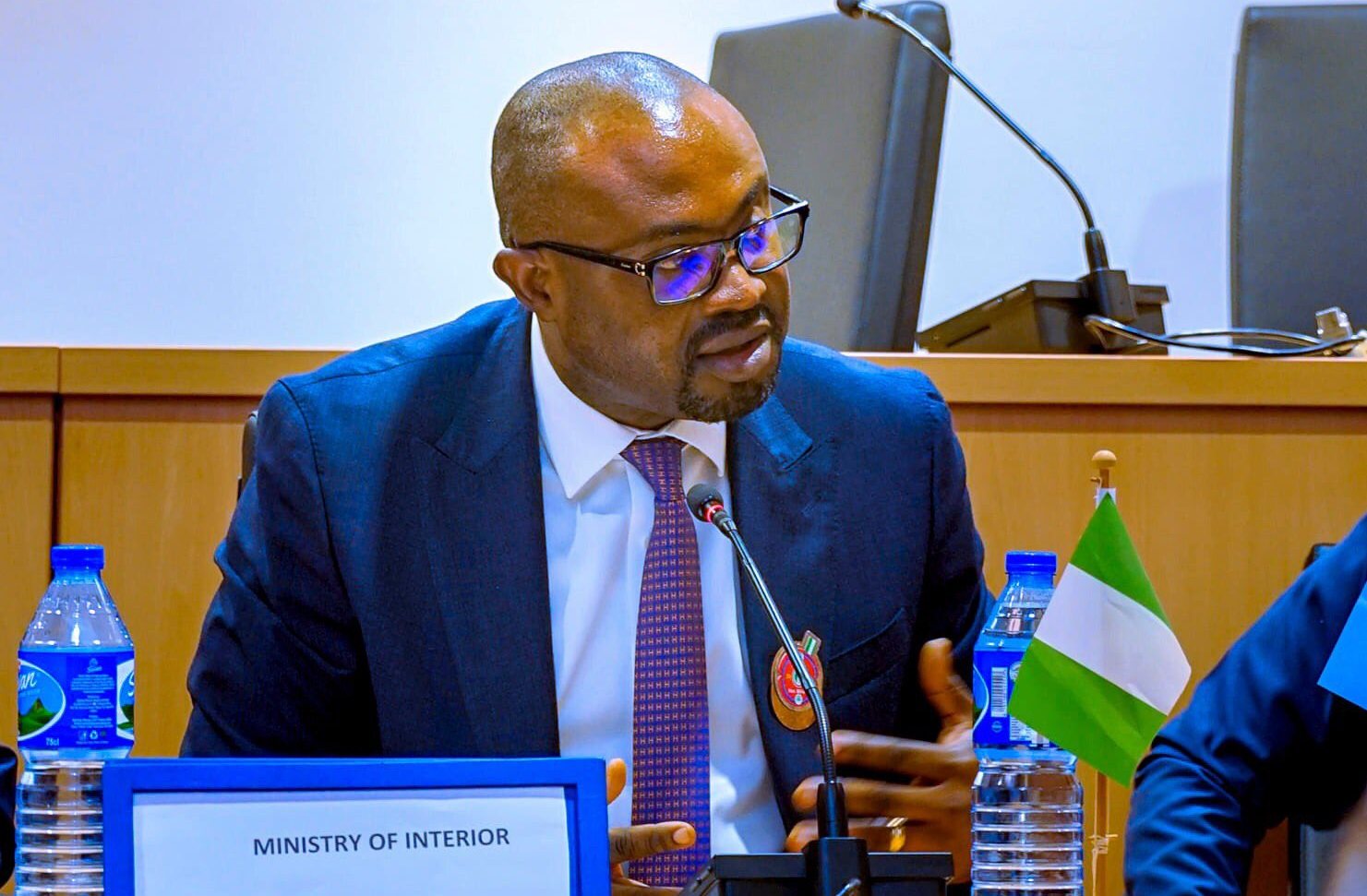

The Federal Government has declared Monday 17 and Tuesday 18, as public holidays to mark this year’s Eid-el-Kabir celebration.
This is contained in a statement by the Permanent Secretary, Ministry of Interior, Dr Aishetu Ndayako, on Friday in Abuja.
She stated that the Minister of Interior, Dr Olubunmi Tunji-Ojo, who made the declaration on behalf of the Federal Government, congratulated all Muslim Ummah both at home and in the Diaspora.
He urged the Muslim Ummah to continue to imbibe the spirit of peace, kindness and sacrifice, as exemplified by Prophet Ibrahim (Peace be upon Him).
Tunji-Ojo also urged them to use the period to pray for unity, prosperity and the stability of the country.
The minister assured that the administration of President Bola Tinubu, was committed to safeguarding the lives and property of all Nigerians.
While wishing the Muslim Ummah a happy celebration, the minister advised all Nigerians to take responsibility in the resolve to hand over a prosperous Nigeria to our children.
Top Story
Tinubu to receive draft bill proposing regional govt system today
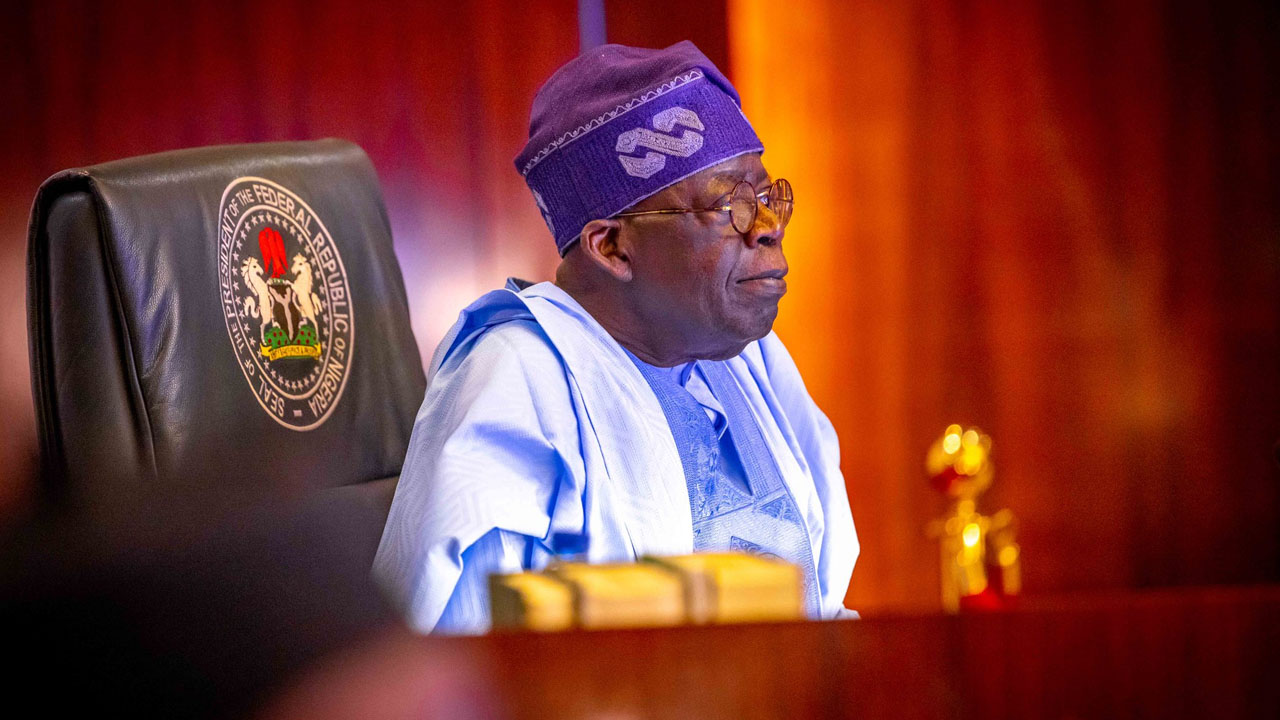

…Afenifere chieftain unveils proposal for 8-region Nigeria, interim boundaries
…Coalition advocates new constitution in Nigeria’s Governance overhaul blueprint
…Union proposes retaining 36 States as provinces with reduced powers
By Sodiq Adelakun
President Bola Tinubu is set to receive a draft bill today that seeks to reintroduce a regional system of government in Nigeria.
The proposed legislation, titled ‘A Bill for an Act to substitute the annexure to Decree 24 of 1999 with New Governance Model for the Federal Republic of Nigeria,’ was authored by Akin Fapohunda, a chieftain of the Yoruba socio-cultural association, Afenifere.
The bill aims to establish a new governance model for Nigeria, which would involve a return to a regional system of government. If passed, the new laws would be cited as “The Constitution of the Federal Republic of Nigeria New Governance Model for Nigeria Act 2024.”
Akin Fapohunda, the author of the draft bill proposing a return to a regional government system in Nigeria, has announced that the bill will be transmitted to President Bola Tinubu on Friday.
Recall that this comes despite the House of Representatives’ earlier disownment of the bill, with its spokesman, Akin Rotimi, and the Chairman of the Committee on Rules and Business, stating that it had not been listed for deliberation in the ongoing review of the 1999 Constitution.
“I’m submitting my letter (draft bill) today but I will wait for seven days before releasing it to the public,” he said
Also, Akin Fapohunda, representing the Coalition of Indigenous Ethnic Nationalities, has unveiled a proposal to divide the country into eight distinct geo-political regions, complete with interim boundaries.
Speaking to journalists, Fapohunda outlined the envisioned regions, with the southern region encompassing Akwa-Ibom, Bayelsa, and Cross Rivers States, along with other ethnic communities.
The South Eastern region is slated to include Abia, Anambra, Ebonyi, Enugu, and Imo States, while the Western region would comprise Lagos, Ogun, Ondo, Osun, Oyo, and Ekiti States, with additional inclusion of Yoruba-speaking populations in neighbouring regions.
The Mid-Western Region would be composed of Edo and Delta States, potentially incorporating the Anioma people, while the Eastern Middle Belt Region would encompass several northern and central states.
The Western Middle Belt Region comprises Southern Kebbi, parts of Kwara and Niger States while the North Eastern Region will be made up of parts of Borno, Gombe, Bauchi, Jigawa, and Yobe States.
The North Western Region, according to the Afenifere chieftain, comprises Kaduna, parts of Kebbi, Kano, Katsina, Sokoto and Zamfara States.
Fapohunda said the coalition envisaged a two-tier government, federal and regions, adding that the latter would be at liberty to manage her affairs, “including the creation of sub-entities, based on the stipulations that are agreed upon and embedded in their respective constitutions.”
In its proposed governance stipulations, CIEN stated that “In the quest for re-configuration and downsizing, an option to consider might be to retain the present boundaries of the 36 States, as would have been adjusted, but to creatively downgrade the paraphernalia of political administration as follows:
“To introduce a new regional government framework with executive and legislative functions and bodies with the headship title of Premier.
“In the new dispensation, the present States (for example the six in the Western region) would be converted to provinces. Governance at this level shall be by Provincial Councils that integrate executive and legislative functions, with Chairman and Support Specialist Administrative Officers. The regions shall be at liberty to create provinces, subject to viability and self-sustainability.
“The present Local Government Areas are to be transformed into divisions, with divisional managers and specialist administrative officers; to operate as socio-economic development institutions. The new provinces shall also be at liberty to create divisions, subject to viability and self-sustainability.”
In the same vein, the Coalition of Indigenous Ethnic Nationalities has put forward a proposal for a new constitution, emphasising regional autonomy and decentralisation of federal power.
Among the key novelties outlined in the proposal is the freedom granted to regions to create, merge, or reconfigure their sub-political units without external interference, fostering a tailored governance approach to suit local circumstances.
The coalition envisions a streamlined public administration, with regions aiming to reduce the cost of civil service to a fraction of generated revenue.
Central to the proposed constitutional framework is the establishment of a unicameral federal legislature, wherein members are elected directly by their respective regions to represent their interests in the national capital, Abuja.
Furthermore, the coalition advocates for a leaner federal government, proposing a maximum of nine ministries and ministers, drawing parallels with the streamlined cabinet of the United States.
The return to a parliamentary mode of government, with built-in statutory rotation of regional leadership, is also highlighted as a crucial element in ensuring equitable representation and governance across the country.
“Regions and sub-regional entities are to be reconfigured such as would reduce the cost of public and civil service administration to less than 20 to 30 percent of generated revenue.
“In drafting their Constitutions, the peoples of the respective regional territories will take a cue and also dismantle any arrangement or configuration that will favour the politicians and the political class; with a focus on freeing resources for true development.
“A uni-camera federal legislature comprising members that are elected at the discretion of the regions for which they would be representatives at Abuja.
“Decentralisation of federal power in favour of not more than 10 regions on which there is a general national consensus, rather than the presently unwieldy number of 36 States. These old States are inconsequential indeed in being a viable unit of a truly federal system of government.”
Top Story
Lagos GDP grew by 50% in five years under my administration — Sanwo-Olu
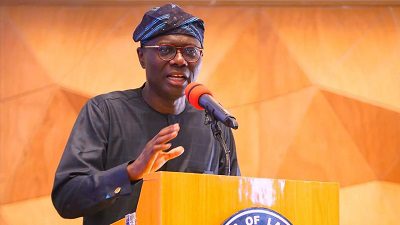

By Sodiq Adelakun
The Lagos State Governor, Babajide Sanwo-Olu, has said the Gross Domestic Product of Lagos, in the last five years under his administration, had risen by almost 50 percent, surpassing the size of the GDPs of over 40 African countries.
The responsible factors, the governor said, could be linked to the unending effort by his administration to improve the Ease of Doing Business and the decision to leverage the technology and entrepreneurial abilities of its population for economic activities.
Sanwo-Olu said Lagos had grown from being a state in deficit in the military era to becoming a hub for investment and technological advancements.
The governor stated this while delivering the closing speech at the ongoing 3rd AfriCaribbean Trade and Investment Forum (ACTIF 2024) in Nassau on the theme: “Global Africa, Global Lagos: The Role of Sub-Nationals in Driving the Global African Agenda.”
“Lagos is an example of a unique African success story, shaped by an interesting mix of advantages and challenges. It is the smallest of Nigeria’s 36 States, yet is responsible for more than a third of Nigeria’s entire GDP.
“Lagos has grown to have a GDP that is greater than the GDPs of all but seven African countries. In the last five years, under my leadership, we have seen an almost 50 per cent increase in our GDP,” Sanwo-Olu was quoted as saying in a statement on Thursday by his spokesman, Gboyega Akosile.
“Lagos presents a significant context on how sub-national governments are vital in writing new stories of development and advancing the economic agenda of the continent. I am proud to say that we in Lagos State have indeed mastered the art and science of Public-Private Partnerships. Having pioneered this private sector-led development in Lagos, we are now exporting that template to other States across the country.
“Our growth stories speak to the importance of African solutions and African capacity for tackling African problems. As we work towards accomplishing our aspirations, it is clear that sub-sovereign entities, such as cities, states, provinces, regions, and municipalities, can be instrumental in translating African countries’ high-level goals into tangible outcomes. It is at this sub-national level that a lot of the most remarkable reforms and transformations are playing out,” He reiterated.

